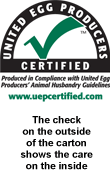 I want to make sure that everyone knows that I’m all for a clean environment and doing things to make it so. However, I am so tired of hearing about the man made global warming hoax that I have no words to describe it. But hey, if you can use it to your advantage, why not? If there’s anything about 2007 that I will most remember it’s how gullible the public can be when it comes to something that’s so accepted and promoted by the mainstream media. At least I guess they’re gullible. How about you? Do you believe that all of the sudden the Earth is in terrible peril and we’re all going to die unless we somehow all change our lifestyles, yadda, yadda, yadda? You don’t see most of the stars changing theirs although I did read somewhere that Paris Hilton is going to start turning off the lights when she leaves a room.
I want to make sure that everyone knows that I’m all for a clean environment and doing things to make it so. However, I am so tired of hearing about the man made global warming hoax that I have no words to describe it. But hey, if you can use it to your advantage, why not? If there’s anything about 2007 that I will most remember it’s how gullible the public can be when it comes to something that’s so accepted and promoted by the mainstream media. At least I guess they’re gullible. How about you? Do you believe that all of the sudden the Earth is in terrible peril and we’re all going to die unless we somehow all change our lifestyles, yadda, yadda, yadda? You don’t see most of the stars changing theirs although I did read somewhere that Paris Hilton is going to start turning off the lights when she leaves a room.
I’m sorry, got carried away. This post started because of an announcement from United Egg Producers about a study that shows that cage eggs (the good kind) don’t warm the globe as much as those other kinds.
A study conducted by Adrian Williams, PhD., senior research fellow at Cranfield University in the United Kingdom, found that the traditional cage egg production currently used by most U.S. egg farmers decreases the industry’s effects on global warming by 10 percent, while converting to all free-range egg production would increase the effects on global warming by 10 percent and converting to all organic egg production would increase the effects on global warming by 40 percent.
The research examined the energy and food levels for farm production on 10 different agricultural and horticultural commodities such as potatoes, tomatoes, beef, milk, poultry, and eggs. In addition to the varying production findings, the study found that egg production as a whole is less harmful on the environment than other livestock. Egg production takes less global energy thus producing less greenhouse gases into the atmosphere. The study was funded by the Department for Environment Food and Rural Affairs in the U.K.

